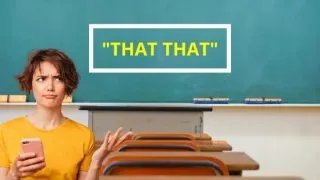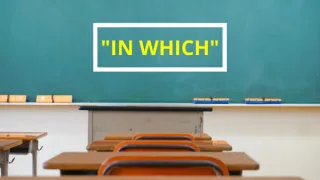Sharing is caring! 2 shares Share Pin Propelled by the mutual and collaborative effort of human beings, the world has become more complex than ever. Collaboration is characterized by seeking and providing services for one another, which essentializes the use of polite communication strategies. Gratitude expressions are tools in reciprocating acts of kindness provided by …
Search results for: nonetheless
Gratitude plays a pivotal role in society as it reinforces positive effects on the physical, psychological, and social welfare of human beings. This means that gratitude is a major building block in daily human interactions, which is key in holding society together. Gratitude can be expressed in several ways in the form of gestures, compliments, …
For some people, grammar is a rigid structure that does not change over time. They believe that it consists of a set of logical rules that are as constant as the rules of maths and physics, and these tend to be the same people who are easily offended by any grammatical infraction, believing that it …
The daily affairs of human beings entail the inevitable need for social interactions which, in turn, call for various communication strategies. Our linguistic repertoire is loaded with retrievable language patterns whose expression is dictated or reinforced by various circumstances. One utterly common situation that prompts a particularized statement response is the act of favor or …
The act of expressing gratitude is a fundamental part of building and maintaining social relationships. Expressive statements are used in both formal and informal registers to mark the sense of reciprocity toward a favor or any act of kindness provided. We tend to use a particular form of formalistic gratitude verbiage to people with whom …
Human beings are gifted with intellectual and physical abilities to communicate with one another. Other than that, humans also have the ability to create a psychological impact by using meaningful expressions in discourse. Since communication goes beyond logic, we can deduce the meaning of expressions subsumed in words, phrases, and sentences. In this article, we …
Linguistic politeness facilitates human civilization in a myriad of ways. This concept elicits the fact that people are capable of considering others’ emotions, thereby reinforcing the importance of polite language in communication. One utterly common example of polite language goes by the verbiage “Thank you for letting me know.” Let’s take a closer look at …
Have you ever wondered why and how on earth can a word be flanked with its identical twin in a sentence? If you’ve questioned whether or not this type of phrasal construction is grammatically-correct, then you must be a grammar stickler! Kidding aside, if you’ve landed on this post searching for some answers, then that …
The flexibility of language as a communication device allows humans to convey information either colloquially or formally. While colloquialism emanates a tone of friendliness, formalistic speech entails more objectivity, logic, and conviction. Hence, the formal language is preferable for record-keeping, such as in historical texts, as well as in pedagogical practices. Let’s take a closer …









